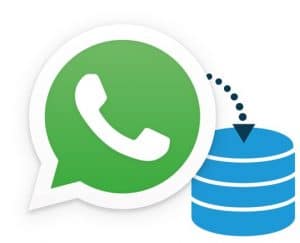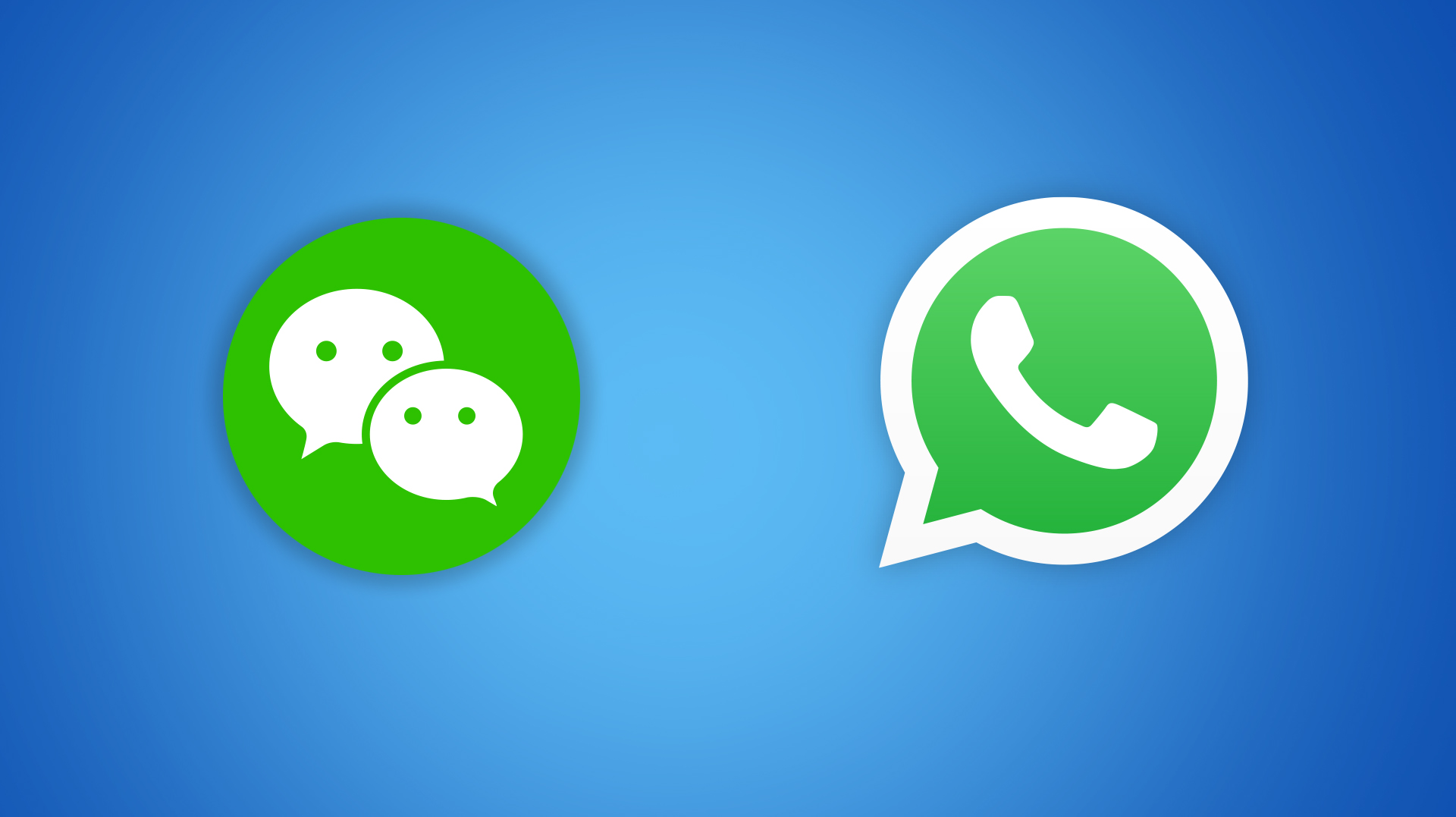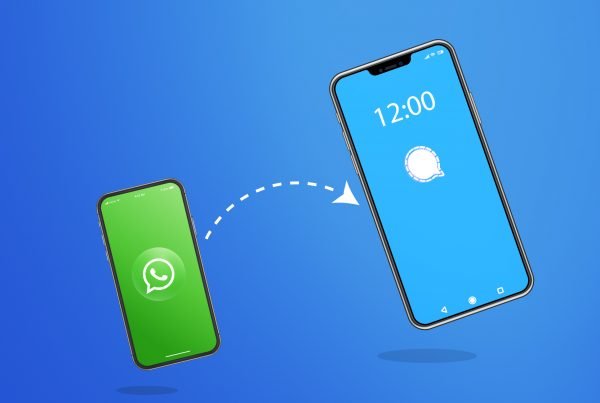If you wind the clock a few decades back, you can see people holding their mobile phones having keypads, thinking what to type. You might see them counting the number of characters in their message and deleting longer words so that the number of characters is within the allowable limit specified by the network operator. This was the struggle of sending an SMS a few years back. People had to be conscious about what to type, which was not about the context of the message but its length. There was a character limit set for a text message by the operator and you might have to send multiple messages just to complete the conversation; after all, it says “Short Message Service”. But people were reluctant to send multiple messages regarding a single conversation, as more messages meant more holes in the wallet. Not to mention the time and effort required to go to a shop and credit your mobile number with the amount for these services.

The thought itself may spook children these days and may even be a fairy tale to them. Because long gone are such days and hopefully, there will never be a turning back to such an age. As internet services and mobile phones became more affordable to the larger mass within the recent times, the possibilities being offered to the public has also become huge. Tables have turned from the side of network operators those who dominated the calling and messaging services, to the Instant Messaging (IM) applications who provide these services free of cost. From a time where people used to think twice about sending an SMS, they are now sending messages for anything and everything, owing to the so-called IM applications. To name a few, WhatsApp, WeChat, Telegram, Signal, Viber are examples of such applications and they are gaining popularity among the public, day after day. To be more specific, WhatsApp and WeChat are the giants that share the larger piece of the pie.
What’s up people!
What’s up; you have been asked this and you have been asking this, for almost a million times in your life. And this is the pun that they hide behind the name WhatsApp, which is currently owned by Facebook. They offer services like one-on-one text messaging, group chats, voice messages, voice, and video calls, and also allows you to send multimedia files, including photos, videos, music, and even documents. With 1.5 billion messages sent every day, 1.5 billion active monthly users, and 3 million companies using WhatsApp for business, WhatsApp is the number one instant messaging application in the world right now.
Hello from the Land of Dragons
WeChat is another popular instant messaging application, which is owned by the Chinese tech giant Tencent. WeChat is similar to WhatsApp in many ways as they offer services like text messaging, voice messaging, sending multimedia files, and so on. But WeChat offers certain other services like online payments, booking a taxi, and much more. With 45 billion messages sent every day, 1.15 billion active monthly users, and 20 million WeChat business accounts, WeChat wears the crown of the number one instant messaging application in China.
Let us now closely analyze what these applications have to offer.
Getting Started: The User Experience
WhatsApp is banned in China and WeChat is banned in certain other parts of the globe, for example, in India and the USA. For regions other than specified earlier, both the applications are available for download. You will need to have a valid phone number to register your account with WhatsApp, whereas WeChat offers you the option of registering your account using Facebook, apart from your phone number.
WhatsApp and WeChat work on both Android and iOS platforms. They can also be used on a PC either as a web application or as a desktop application. The user interface of WhatsApp is pretty simple with three main tabs, namely “Chats”, “Status” and “Calls”, and the icon for “New Chat”. WeChat also has a simple user interface with “Chats”, “Contact”, “Discover” and “Me” menu buttons. When compared to WeChat, WhatsApp offers a much simpler user interface. Hence, it will be easier for an entirely new user in the instant messaging platform to use a WhatsApp account, rather than a WeChat account.
Text and Voice Messaging
Both the applications support text messaging. If you are having a decent internet connection, then fear not, you are good to go. Text deliveries are quick and prompt. You can create groups of people in both the applications with a maximum of some 500 people in a group. Features like broadcasting a message to more than one person at a time, using emoticons and stickers are common for both these apps.
The voice message is yet another cool option provided by both parties, where you can simply press a button and say your message. The message will be sent once you release the button.
Sharing Multimedia
Photos, music, and videos can be sent using WhatsApp as well as WeChat. But the maximum allowable size limit for them is 16 MB and 20 MB respectively for these apps. You can either share photos or videos in your gallery or use the in-app camera to capture a new moment. WeChat allows its users to edit the picture within the application, which gives it an advantage over WhatsApp.
Sociability
You can directly message a WhatsApp user if you are having their number. Users can only be identified using their phone number in WhatsApp.
But WeChat offers a lot more options to connect with people and build your friends’ circle. In WeChat the other user must approve to receive a message, when it is being sent for the first time You can connect to a person if you know their WeChat ID or phone number. “Friend Radar” is another option where the application scans for nearby users. Interestingly you have the option of shaking your phone, which will search for new friends nearby. Scanning the QR code in the application is another way to connect with new people.
“WeChat Moments” is yet another service provided by WeChat, which is similar to a social media page, where you can have your posts and set your privacy settings. But this feature still needs some polishing to do as the user experience is comparable with other social media platforms like Facebook or Twitter.
Personal and Business Accounts
Facebook offers users WhatsApp Messenger for personal communication and WhatsApp Business for official business communications. WhatsApp Messenger provides the users with services like text and voice messaging, voice and video calls, multimedia sharing, etc. Whereas WhatsApp Business is used to have a business presence on WhatsApp. Companies use the business version of WhatsApp to communicate with their customers. It has advantages like displaying the company’s business profile, “Away” messages to show that you are unavailable, and “Greeting” messages to welcome a customer when they first text you.
Tencent also offers a similar service where they provide WeChat for all personal communications like text and voice messaging, voice and video calls, and much more. But for the interaction with customers, Tencent offers another solution called WeCom. It has productivity tools such as Event, Meeting, WeDoc, and WeDrive that enhance your business communication and management.
Additional Features Offered by WhatsApp
You can share either your current location or live location using WhatsApp. It helps you keep a track of your loved ones in times of emergency, or you can simply use it to show the way to your home for a friend, colleague, or relative.
Most of us might have been in an awkward situation where the message we sent to a person or group is not meant for them. Well, if you are using WhatsApp, you can forget about that. WhatsApp allows you to delete a message within two minutes after you have sent it. But a label saying “This message was deleted” will be shown, which is much better than the awkwardness of the original message.
The “Read Receipts” feature allows you to know whether your message has been received and read by the recipient. It can be turned off in the settings so that a message read by you cannot be identified by the sender, but voice messages will still show as read once they are played. You can tap and hold a message and click on the star button to mark it as important so that you can directly search for starred messages when in need. A dedicated option for searching multimedia messages in a chat is available in the search bar. If you wish to delete large files, WhatsApp could find messages larger than 5 MB for you. This is available in the “Storage and Data” section of WhatsApp settings. Another service like the “Disappearing Messages” allows the user to send messages that will disappear from the chat after seven days.
Additional Features Offered by WeChat
“WeChat Localization” is a location-sharing service offered by the application. This not only helps in sharing your location with friends and relatives but also allows you to receive location-specific suggestions on products and services.
WeChat supports a ton of other features such as the “WeChat Search Engine” that allows you to search within the application, or to find official WeChat accounts. This cannot be used to search content on the web. “Hongbaos” or the “Red Envelopes” can be used to send surprise payments to people on festive occasions WeChat E-Wallet and WeChat Pay are one-stop solutions for your banking needs. You can link your bank account or credit card with the WeChat application and pay for services and perform online money transactions. You can pay for your utilities and even apply for loans using WeChat. WeChat has now become an ecosystem where the company has launched mini-programs within the application. This allows the user to avail services like booking a restaurant, hotel, movie ticket, or a taxi, booking a doctor’s appointment, discovering houses for sale or rent, participate in flash sales, and much more.
Privacy and Security
Even though these applications were weighed considering different features, the privacy and security of these applications might be arguably the most important factor to be considered. WhatsApp and WeChat are a few of the most widely used social media applications in the world today. People share their priced moments with their loved ones through text messages, voice notes, photos, and videos. Hence people will expect privacy and security from these applications. But are their expectations met?
The user data from WeChat will be available to the Chinese government authorities upon request. Hence there are chances that you could be monitored and WeChat archiving may be done on your account without your consent. There has been an instance of WeChat monitoring was done by the Chinese authorities where a human rights activist Hu Jia was imprisoned for three years, under the accusation of sedition. Hu Jia accuses the authorities of listening to his voicemail messages with his friends, as he reports that the officials were repeating the words heard in those messages.
WhatsApp on the other hand assures the users of their privacy through their policies. But the company has been under the impression of failing to meet such promises in the recent update of their privacy policy. WhatsApp was already sharing certain user data with Facebook for enhancing the user experience. The kind of data that they share with Facebook has now been shared with the public, with the release of their updated privacy policy. But the company has assured its users that these changes mainly affect businesses and not individuals.
The advantage that WhatsApp has over WeChat in this regard is that the messages you sent through WhatsApp are end-to-end encrypted. Hence, only the sender and the receiver will be able to view these messages, and even WhatsApp will not be able to view them. Also, the company assures that they do not perform WhatsApp archiving, as it is practically impossible to store the data of two billion users. But for business accounts, this will be different. WeChat does not support end-to-end encryption, and hence the chats could be handed over to the government upon request, as stated in their privacy policy.
WhatsApp allows users to backup their chat via Google Drive, whereas the chats in WeChat are stored in the device itself, which cannot be transferred to another device.
The Verdict
Both the applications have their unique advantages. It is a matter of the personal preference of the user on which application to select. If you are a person looking for a complete package where you can chat, purchase and perform online payments, then WeChat will be the right pick for you. But if you are a person who loves simplicity and your only aim is to be present online, then look no further than WhatsApp.
About TeleMessage
TeleMessage captures and retains mobile content, including mobile SMS messages, voice calls, and WeChat conversations from corporate or BYOD mobile phones to ensure compliance with various data protection regulations. The messages are securely and reliably retained within TeleMessage servers or forwarded to your choice archiving data storage vendor.
Our mobile archiving products securely record content from mobile carriers and mobile devices for various ownership models (BYOD, CYOD, and employer-issued). With our multiple archiving solutions, you can always find the right tools or blend for your requirements:
- Network Archiver
- Enterprise Number Archiver
- Android Archiver
- WhatsApp Archiver
- WeChat Archiver
- Signal Archiver
- Telegram Archiver
TeleMessage offers cross-carrier and international mobile text & calls archiving for corporate and BYOD phones. Visit our website at www.telemessage.com to learn more about our mobile archiving products.
We are your one-stop shop for international, cross-carrier mobile text archiving.

WhatsApp Archiver
Identical to regular WhatsApp, while capturing all WhatsApp calls, chats, attachments, files and deletions and uploading them to be archived.
Read more

WeChat Archiver
Identical to regular WeChat, while capturing all WeChat business chats, messages, multimedia and attachments and uploading them to be archived.
Read more

Telegram Archiver
Record and capture Telegram calls, texts, multimedia and files on corporate-issued and employee BYOD phones.
Read more

Signal Archiver
Record and capture Signal calls, texts, multimedia and files on corporate-issued and employee BYOD phones.
Read more





